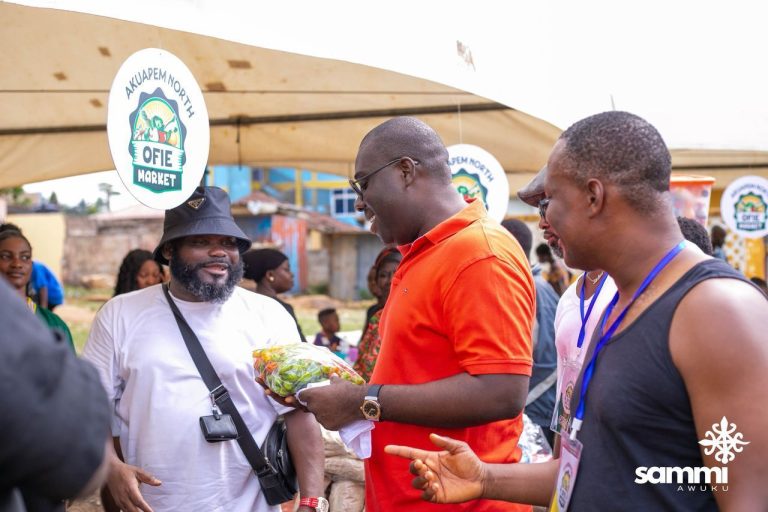The town of Amanokrom once again witnessed an extraordinary surge in economic activity as the second edition of the Ofie Market took place on Saturday, 26th April 2025.
Following the overwhelming success of the maiden event, the second edition not only attracted greater participation from farmers and traders but also demonstrated the tangible economic transformation that the Ofie Market initiative is beginning to drive in the Akuapem North Constituency.
From the early hours of the morning, Amanokrom was bustling with activity. Farmers and traders, now better organized and better stocked, showcased an even wider array of fresh produce, grains, vegetables, tubers, livestock, fabrics, and household goods. Buyers—some traveling from distant parts of the Eastern Region and Greater Accra Region—arrived in large numbers, ready to purchase quality goods at affordable prices.
Compared to the first edition, the second Ofie Market saw a substantial increase in trading volume. Many traders reported that they had doubled their stock to meet anticipated demand—and still sold out by mid-afternoon.
“I brought twice the goods I brought last month, and yet, I sold out even faster,” said one beaming farmer from Tinkong. “The Ofie Market has become our lifeline. We are now planting with a real market in mind.”
Small-scale processors—such as gari producers, oil palm extractors, and shea butter sellers—also found a ready market for their products. Artisans and local service providers, including tailors, carpenters, and repairers, reported new business opportunities arising from the influx of visitors to the town.
Economic Ripple Effects Across Amanokrom and Beyond
Beyond direct sales, the Ofie Market has started to catalyze a broader wave of economic activity across Amanokrom and neighboring communities. Food vendors, drinking spots, transportation operators (especially taxi and ‘trotro’ drivers), mobile money agents, and local accommodation providers all reported higher-than-usual business volumes.
“It’s not just about the farmers selling,” explained a food vendor near the market grounds. “When the market opens, people buy food, people need transport, people make calls and transfer money. Everyone is benefiting.”
There has also been a noticeable uplift in informal employment. Young people are finding opportunities as market porters, assistants, loaders, and logistics support, injecting some relief into rural unemployment pressures.
Local authorities indicated that, within just two editions, the Ofie Market has already generated more commercial traffic for Amanokrom than any other community-driven initiative in recent memory.

